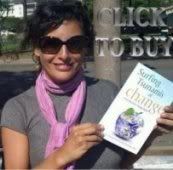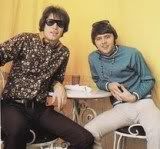I just returned from Hawaii where I enjoyed and experienced the magic of paradise with it’s magnificent ocean waves. When I came across this article my heart broke. I realize I need to take even more personal action to contribute to the change of this reality.
Story at-a-glance:

- Today’s “throw away society” has created mountains of plastic waste, including billions of bottles and bags that clog up landfills and take hundreds of years to break down, as this documentary shows
- Twenty billion pounds of plastic is making its way into our oceans each year, where wave action turns them into a plastic soup; the five oceanic gyres each have massive whirlpools of trash in their cores, damaging sea life and marine ecosystems
- Fish and other sea creatures are being contaminated with plastic, in and around their bodies; sea turtles mistake plastic bags for jellyfish (their favorite food), and albatrosses are found strangled to death by plastic six-pack rings; many species consume plastic “nurdles” and suffer dire consequences, including
 death
death - Chemicals from plastic waste harm living things all the way up the food chain, from plankton to humans; BPA and BPS disrupt embryonic development and are linked to heart disease and cancer; phthalates (such as the plasticizer DEHP) disturb gene expression;
- Even more disturbing, a groundbreaking study suggests serious adverse health problems may be passed down multiple generations
- Suggestion are given about how you can break your plastic addiction and reduce your own plastic footprint.
 There is no single solution to the plastic waste problem. But you can do your part by taking the following action steps that reduce your plastic consumption, which will benefit your health as well as the environment.
There is no single solution to the plastic waste problem. But you can do your part by taking the following action steps that reduce your plastic consumption, which will benefit your health as well as the environment.
- Reduce plastic use: Purchase products that are not made from or packaged in plastic. Here are a few ideas… Use reusable shopping bags for groceries. Bring your own mug when indulging in a coffee drink — and skip the lid and the straw. Bring drinking water from home in glass water bottles, instead of buying bottled water. Store foods in the freezer in glass mason jars as opposed to plastic bags. Take your own leftover container to restaurants. Request no plastic wrap on your newspaper and dry cleaning. These are just a few ideas — I’m sure you can think of more.
- Recycle what you can: Take care to recycle and repurpose products whenever possible. For example, turn your plastic shopping bags into very strong rope.
- Support legislation: Support legislative efforts to manage waste in your community; take a leadership role with your company, school, and neighborhood.
- Be Innovative: If you have a great idea, share it! Your capacity to come up with smarter designs and creative ideas is limitless, and many heads are better than one. Innovations move us toward a more sustainable world.
- Assist Recovery: Return deposits on bottles and other plastic products, and participate in “plastic drives” for local schools, where cash is paid by the pound.
By Dr. Mercola … for the full story click the link below












[…] How Addiction to Plastic Poisons Our Planet (carolineboyce.wordpress.com) […]
[…] How Addiction to Plastic Poisons Our Planet (carolineboyce.wordpress.com) […]
Our sea turtles always get hurt by plastic baggies. Thank U for blogging about this and bringing awareness to this serious problem.
in order to make the necessary positive changes more people need to be made aware of how we are harming our environment and fellow inhabitants of this planet